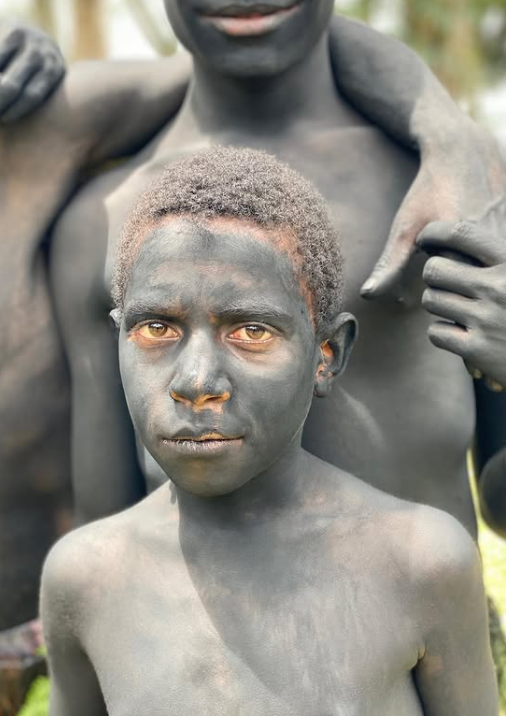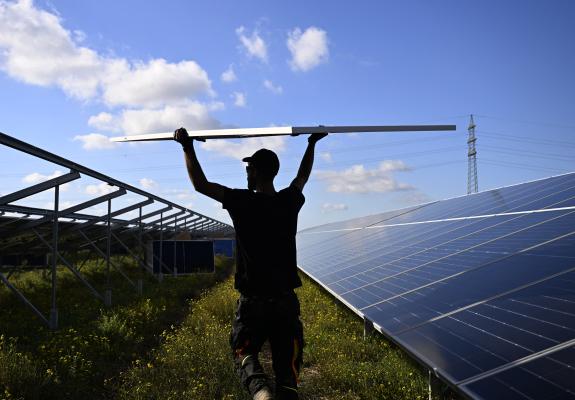Meet the Cypriot Who Has Traveled to Every Country on Earth
Evelthon Vassiliou speaks to FastForward about his quest to visit every country on Earth, celebrating shared human bonds, and the thrill of venturing into the unknown.
Evelthon Vassiliou is a true global explorer, having ticked off every one of the 193 UN-recognized countries, placing him firmly among the exclusive ranks of the ‘193-ers.’
From his early fascination with geography books as a child to a meticulously planned quest in adulthood, Evelthon’s journey is a testament to how travel truly broadens the horizons. It was a childhood dream that he transformed into reality through determination, resourcefulness, and an unshakeable sense of curiosity.
In our interview, he shares the joys, challenges, and personal revelations that come with setting foot in every corner of the globe.
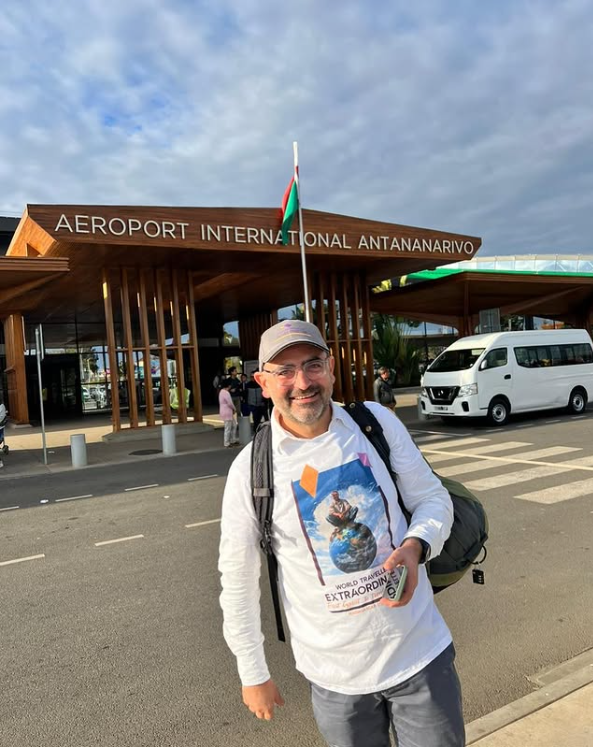
My passion for travel began in childhood, when I would spend hours poring over atlases, tracing the borders of distant lands and imagining what life was like in places I had never seen. I devoured books and encyclopaedias, and became fascinated reading about ancient civilizations, lost cities, and the wonders of the world. By the time I was 9 or 10, I had already made up my mind—I wanted to visit ‘everywhere.’
By the time I was 9 or 10, I had already made up my mind—I wanted to visit ‘everywhere
However, it wasn’t until my early 30s that I truly committed to making this dream a reality. By then, I had visited about 50 countries, and I realised that if I wanted to complete the journey, I needed a plan. So I set a goal: if I could visit around 10 new countries a year, I would reach every country in the world by the time I turned 50. The main challenge in this was planning and logistics especially with a regular office job. Covid also delayed me somewhat but I reached the end with a visit to Madagascar when I turned 52!
Risk is an inherent part of travel, and everyone has their own threshold. For me, stepping outside my comfort zone and experiencing life as it truly is—beyond the headlines—is what makes travel so rewarding. While I would never knowingly walk into a war zone, I also recognise that even in places that are in the news, millions of people continue their daily lives. The reality on the ground is often far less dangerous than the media suggests.
I always do my research—consulting government travel advisories, current news, and specialized travel agents. Sometimes, the advice is contradictory. When I visited Mauritania, some embassies advised against all travel outside Nouakchott, while others were more relaxed; I chose a more conservative approach. Yet when I recently went back to Iraq, I knew from local contacts and news sources that life was functioning normally so I ignored official advice not to visit. In some high-risk destinations such as Afghanistan, I’ve opted to travel with specialized agencies that understand the nuances of safety on the ground. While in places such as North Korea, you have no choice but to go with government appointed chaperones who make sure tourists don’t stray from the beaten path.
Risk is an inherent part of travel, and everyone has their own threshold. For me, stepping outside my comfort zone and experiencing life as it truly is—beyond the headlines—is what makes travel so rewarding
The biggest travel challenges, however, are often unexpected. I had to cut a trip to Guinea short due to an Ebola outbreak. In Bogotá, I cancelled a visit to the Gold Museum when police began firing tear gas at demonstrators nearby. I’ve been shaken down by police in Douala, Cameroon, and was deported twice—once from Latvia in 1995 and again from Senegal in 2014. And sometimes, it’s the mundane disruptions that can be the most challenging —a taxi strike in Italy once left me completely stranded.
Overcoming these challenges, whether serious or trivial, has shaped me as a traveller and as a person. Travel teaches adaptability, resilience, and the ability to find solutions in the face of the unexpected. That, for me, is part of its enduring appeal.
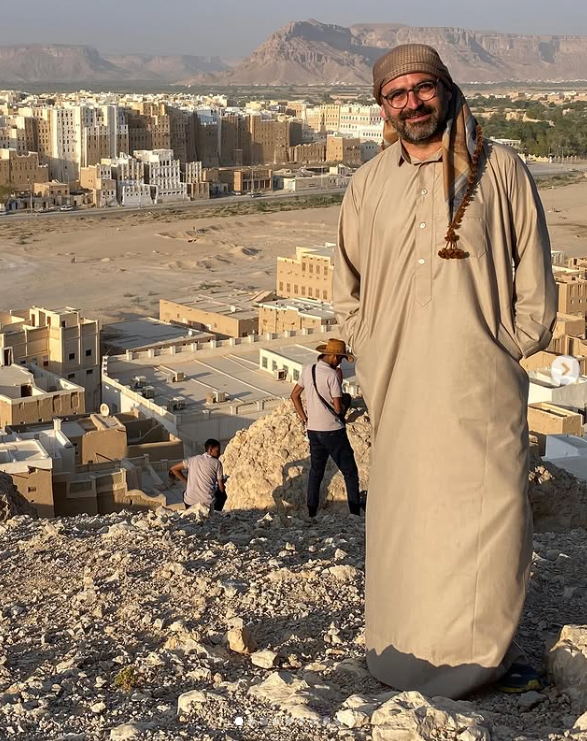
The beauty of travel lies in discovering the unfamiliar—the chance to taste new fruits, breathe in new scents, and witness the richness of human creativity in monuments, temples, and landscapes. It has given me the privilege of stepping into different worlds, each with its own rhythm, traditions, and way of life.
The more I have travelled, the more I realise how similar we all are. People everywhere share the same fundamental hopes, dreams, and aspirations, and take immense pride in the place they call home.
The more I have travelled, the more I realise how similar we all are. People everywhere share the same fundamental hopes, dreams, and aspirations, and take immense pride in the place they call home
Yet there lies a paradox: while people take pride in and celebrate their own culture and identity, many also believe theirs to be superior to others. This belief often seeds misunderstanding and conflict, making the “other” feel distant or threatening.
Despite this, the world remains both beautifully diverse and fundamentally interconnected. True understanding begins when we embrace both these truths.
I began traveling systematically at a time when we still had to rely on film, carrying rolls of it and hoping the photos would turn out when developed weeks later. The advent of digital photography was a game-changer, and social media took it a step further, making it easy to share experiences with friends and family in real time. However, I’ve never seen documenting my travels as a goal in itself—it’s more of a way to capture moments for later reflection.
Perhaps it’s a generational thing, but social media is not my main focus when I travel, and I sometimes forget or fail to post about my trips. That said, social media now plays an important educational role, inspiring people to visit places they might not have otherwise considered or encouraging them to step outside their comfort zone. So, I try to be mindful of that when I post—aiming to distil a place or moment into a handful of photos and a brief description. It’s an art in itself, though one I haven’t (yet) mastered.
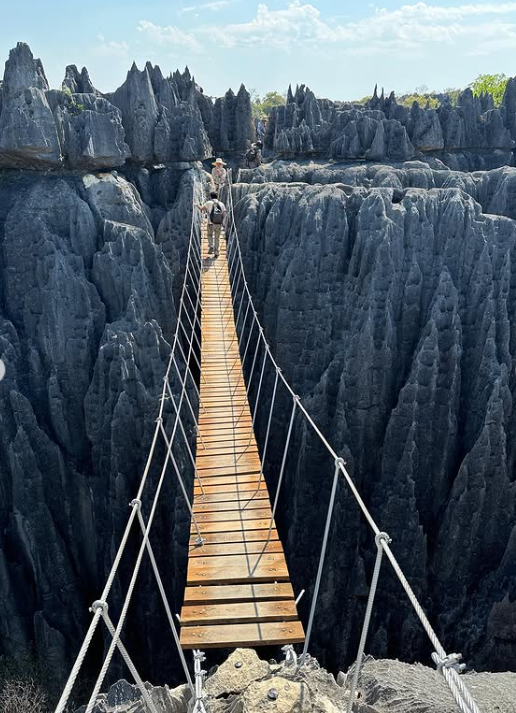
I’m a huge fan of famous landmarks, and often turn to the UNESCO World Heritage List when researching a destination. Places like Angkor in Cambodia, Egypt’s (and Mexico’s) Pyramids, the Parthenon, the Amazon rainforest or Japan’s Mount Fuji— places, people, cultures, indeed the history of humanity cannot be understood without seeing at least some of them.
That said, there’s a unique joy in discovering lesser-known treasures, those that haven’t been overexposed on social media. For example, Great Zimbabwe, the ruins of a stone-walled city that was once the heart of a vast trading empire. It challenges our "western" understanding of technology adoption and the rise of civilizations in Africa.
Or Wadi Dawan in Yemen—an unexpectedly stunning valley with ancient mud-brick cities that seem pulled straight from a fairy tale. Places like these remind me of the hidden stories the world still has to offer, and encourage me to keep travelling as a way to discover and understand.
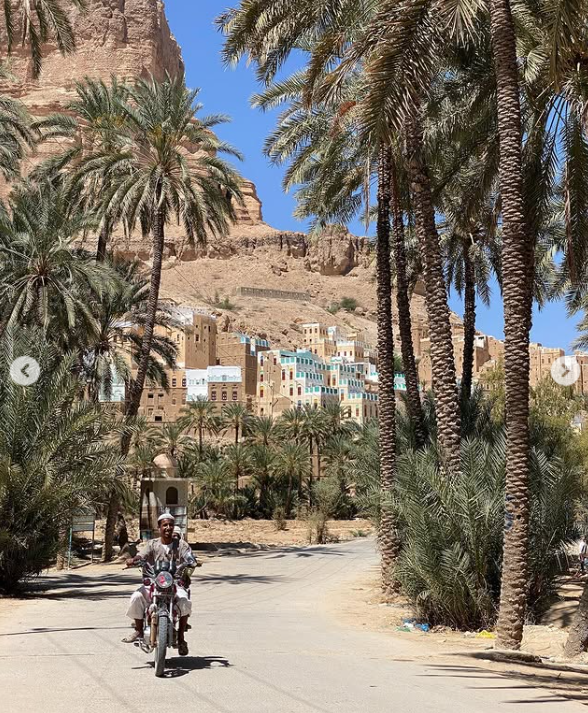
There’s a strong sense of camaraderie within the travel community—it’s a fun, adventurous 'tribe' to belong to. While you don’t need to be a '193-er' (the term for those who have visited all 193 UN member countries) to be part of it, completing this journey is definitely a badge of honour and something to be proud of. I’m just thrilled to have added Cyprus to the list of countries where '193-ers' hail from.
There’s a strong sense of camaraderie within the travel community. […] Completing this journey is definitely a badge of honour and something to be proud of
Nomad Mania is one of a few organisations that bring together travellers. As a group that’s notoriously difficult to pin down, they’re creating opportunities for us to meet in our home countries. With the community of avid travellers growing here in Cyprus, this upcoming event feels like the perfect opportunity to gather like-minded individuals and share experiences.

